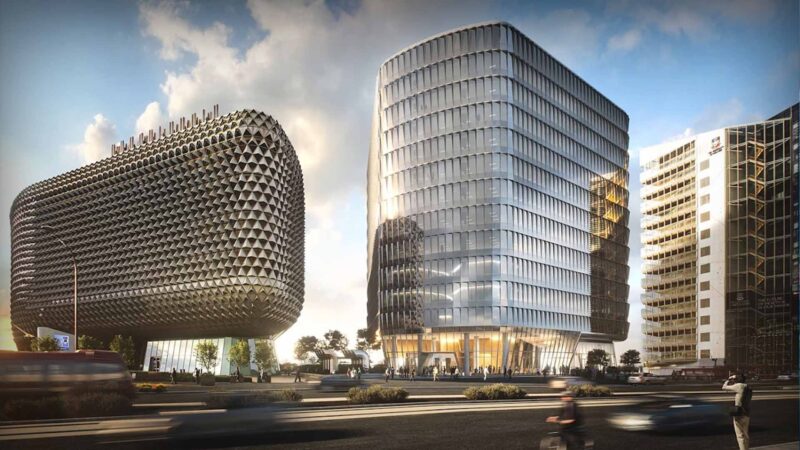An international team of researchers from Adelaide and the United States has engineered bacteria capable of detecting mutated DNA released from colorectal cancer cells, opening the door to faster disease detection.
Led by Dr Dan Worthley, Associate Professor Susan Woods and Dr Josephine Wright from SAHMRI and the University of Adelaide, in partnership with Professor Jeff Hasty at the University of California San Diego (UCSD), the study was published today in the prestigious journal, Science.
The team engineered bacteria called Acinetobacter baylyi (A. baylyi), which is known for its ability to sample and integrate DNA from its environment. Researchers leveraged this natural competence to detect the mutated KRAS gene, an important driver of colorectal cancer.
A/Prof Woods says they dubbed this technology ‘CATCH’, which stands for, Cellular Assay of Targeted CRISPR-discriminated Horizontal gene transfer.
“CATCH has the potential to detect bowel cancer early with the aim of preventing more people from dying of this and other cancers,” she said.
“This study demonstrates how bacteria can be designed to detect specific DNA sequences to diagnose disease in hard-to-reach places.”
In preclinical testing, the team found that the sensor bacteria were 100% accurate in differentiating between models with and without colorectal cancer.
“We were thrilled to see transfer of DNA from the tumour to the sensor bacteria,” A/Prof Woods said.
“This shows that our biosensing system can be used to catch colorectal cancer DNA within a complex ecosystem.”
Dr Dan Worthley says potential applications of the technology extend beyond cancer.
“In the future we will detect and prevent many diseases, including bowel cancer, with cells, not drugs,” he said.
“We hope that this invention, of life detecting life, will be useful for clinicians, scientists and engineers to help the community wherever and whenever DNA detection is important.”.
While further studies are needed before progressing to clinical trials, researchers are confident this latest discovery represents a significant advance in the field of living diagnostics while setting the stage for the timely and accurate delivery of targeted treatments.
You Might also like
-
RESEARCH IMPACT SAHMRI, SOUTH AUSTRALIA (2023)
South Australian Health and Medical Research Institute, also known as SAHMRI has had significant impacts in various areas over the past ten years, and this year is celebrating its 10 year anniversary with a week of events.
Ahead of the anniversary, Executive Director, Professor Maria Makrides spoke to Bench Side Story about 3 achievements in the past 10 years that have had significant impact
-
Investigating invasive lobular carcinoma and metaplastic breast cancer sub-types
Assoc Prof McCart Reed is the scientific lead on an MRFF-funded (Medical Research Future Fund) genomics program investigating the potential for the application of Whole Genome Sequencing in the breast cancer care pathway in Australia, ‘Q-IMPROvE’. She applies genomics and spatial transcriptomics methodologies to archival clinical samples to understand the differences between tumour types and their potential for treatment. Amy is passionate about clinical research, biobanking and precision oncology. In addition to her breast cancer research portfolio, she is on the steering committee for the Brisbane Breast Bank and the Scientific Advisory Board for Breast Cancer Trials.
-
Visceral pain and the gut-brain axis
Professor Stuart Brierley is Director of the Visceral Pain Research Group, Director of the Hopwood Centre for Neurobiology, and Theme co-Leader of Lifelong Health at the South Australian Health and Medical Research Institute (SAHMRI).
Prof Brierley is an international expert on the ‘gut-brain axis’ and chronic visceral pain mechanisms. Current investigations are on a individual cell type called the enterochromaffin cell, and it helps signal pain and anxiety from the gastrointestinal tract to the brain.



